
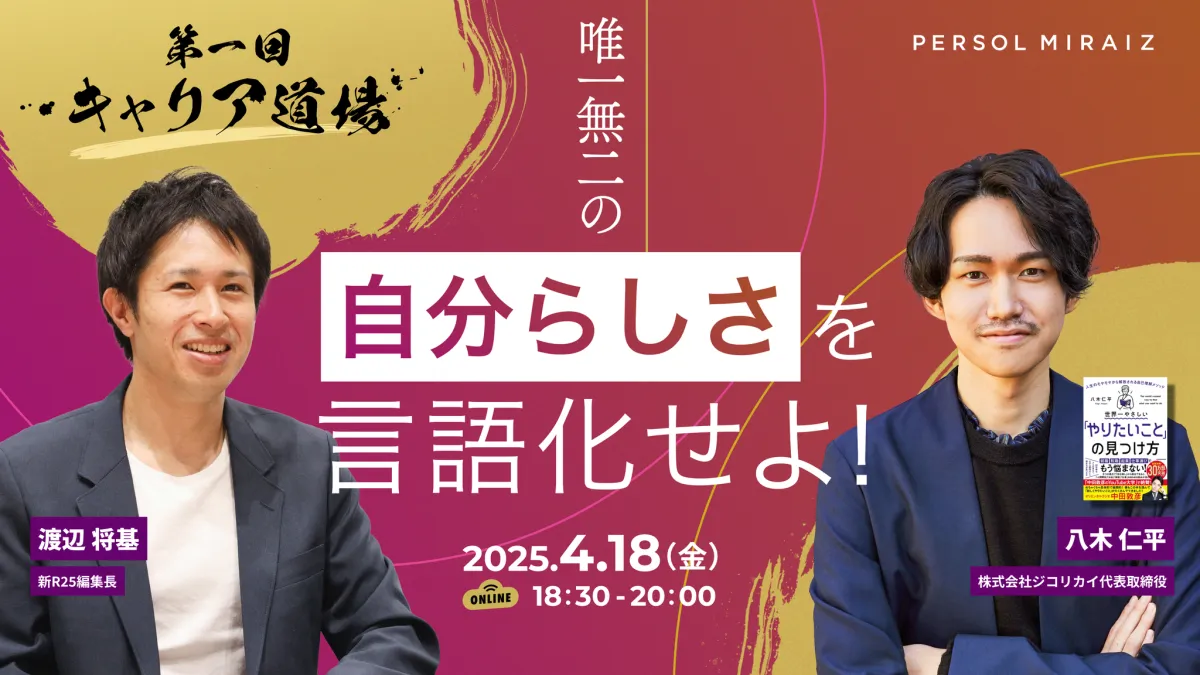
Unlocking Your Authentic Self: Insights from the PERSOL MIRAIZ Career Dojo
Unlocking Your Authentic Self: Insights from the PERSOL MIRAIZ Career Dojo
On April 18, 2025, renowned self-understanding program developer Jinpei Yagi participated in an engaging online seminar titled 'Career Dojo' alongside Masaki Watanabe, Editor-in-Chief of the new R25, organized by PERSOL MIRAIZ. The discussion focused on offering guidance for individuals grappling with career uncertainties and searching for their unique identities.
This event was part of PERSOL Career's initiative to provide free reskilling services aimed at supporting the workforce in evolving their careers. The seminar attracted participants who expressed that they felt lost regarding their career paths, unsure where to begin. Yagi and Watanabe provided crucial insights from their experiences, encouraging participants to articulate their one-of-a-kind identities and explore the essence of who they are.
Event Overview
The 'Career Dojo' seminar was held from 6:30 PM to 8:00 PM and featured a candid dialogue between Yagi and Watanabe, who shared their beliefs and lessons learned throughout their careers. Their conversation encompassed several key aspects:
Identifying Authenticity: Yagi stressed that true self-discovery comes from experiences, stating that it’s essential to engage sincerely with tasks and face challenges to unearth one’s authenticity. He emphasized that merely theorizing without experiential engagement usually leads to superficial conclusions.
Learning Through Experience: Watanabe supported this assertion, suggesting that individuals should step out of their comfort zones to challenge their perceived limitations. According to him, trying even what one finds difficult may reveal hidden strengths. The duo insisted that exploring various experiences is vital in identifying one's true nature.
* Vision Extraction: The discussion also highlighted how to extract ideal personal visions. Based on his 'self-understanding method,' Yagi elaborated that individuals often find their genuine desires hidden amid negative emotions, such as past failures or disappointments. By reflecting on unpleasant experiences, participants could uncover what they truly aspire to achieve.
As the discussion progressed, both Yagi and Watanabe pointed out that observing habitual actions—things done without external prompts—can be a guiding force in discovering one's essence.
Navigating Authenticity in Organizations
For individuals currently employed in organizations, Yagi advised taking advantage of external feedback to gain insights into one's strengths, as others might recognize talents that the individual may overlook. Watanabe also suggested consistently sharing one's aspirations and thoughts within the workplace through daily reports, which can create opportunities and enhance articulacy.
Engaging with Pre-Assigned Questions
During the seminar, participants had the opportunity to address pre-assigned questions related to a 'career inventory sheet.' This initiative prompted engaging discussions:
Q: What’s the difference between 'interest' and 'aspiration'?
A: Aspiration often stems from external influences—wishing for something without prior experience. Conversely, genuine interest often expresses through proactive information-seeking and partial engagement.
Q: How do you distinguish between 'strengths' and 'weaknesses'?
A: Naturally excelling without much effort indicates strengths, while persistent feelings of obligation likely point to weaknesses. A critical shift is that strengths usually provide a sense of fulfillment post-completion, while weaknesses tend to drain one's energy.
Q: How can one find a role where their strengths can be effectively utilized?
A: Aligning personal values and strengths with societal needs is crucial. Engaging in expressive activities, leveraging AI for insights, and gathering diverse perspectives can broaden potential career paths—it’s vital to maintain objectivity.
Broadening the Scope of Learning
As the seminar progressed to the subject of essential learning topics, Yagi and Watanabe shared their thoughts on lifelong education. Yagi opined that adults should actively invest time and resources into cultivating curiosity rather than merely conforming to societal norms. He stated that emphasizing one's unique quirks can lead to individuality and personal growth.
Watanabe emphasized the necessity of developing empathy and insight as critical components across various professions, sharing that such qualities differentiate candidates in later career stages compared to mere hard skills. He insisted on the importance of real human interactions in honing this understanding.
The final discussion revolved around establishing an ideal learning cycle for adults. They mutually acknowledged the need for input that precedes output, suggesting that learning should directly relate to one’s professional journey and interests to have lasting significance.
Both emphasized that following intrinsic curiosity instead of a procedural approach to learning enhances retention and enjoyment. They encouraged all to embrace learning as a journey infused with passion and excitement.
Profiles of the Main Speakers
Jinpei Yagi: After graduating from Waseda University, Yagi founded Jikorikai in 2017 with a mission to empower individuals to discover their passions. His bestselling books on self-discovery have garnered significant acclaim, positioning him as a thought leader in this space.
Masaki Watanabe: Serving as CCO of CAM and editor-in-chief of new R25, Watanabe has built an impressive career in media and content creation, focusing on initiatives that resonate with young professionals.
In conclusion, this seminar not only provided important insights for career development but also fostered a community dedicated to cultivating individuality and self-awareness in one’s professional life.
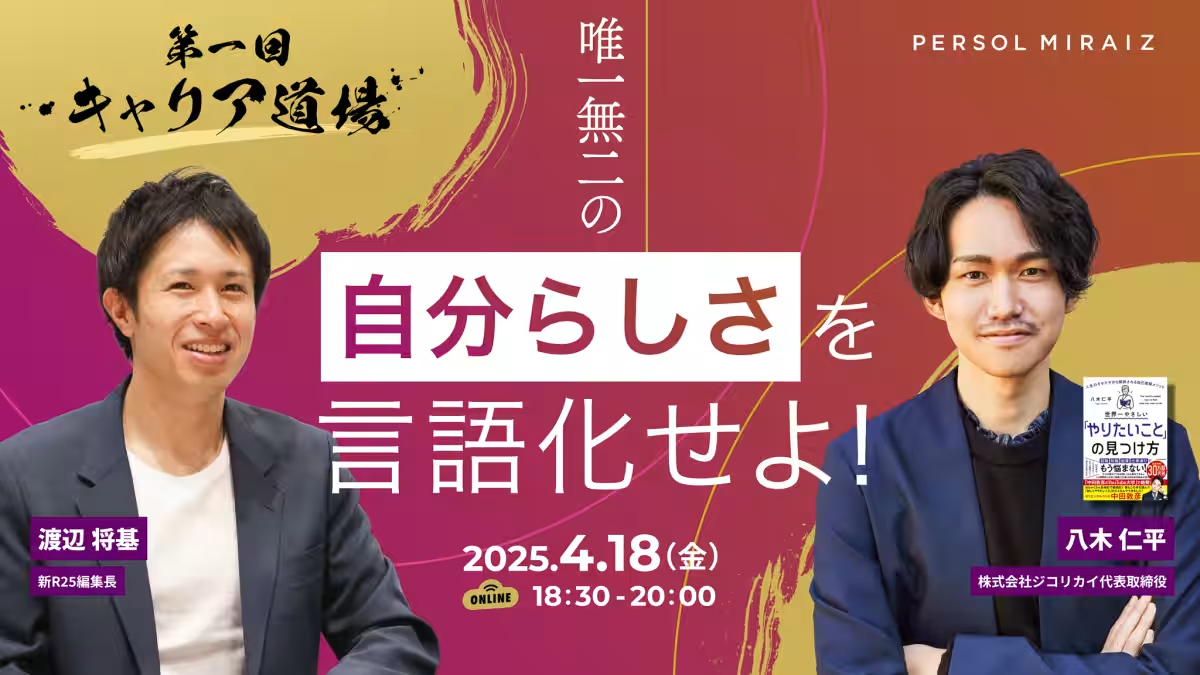
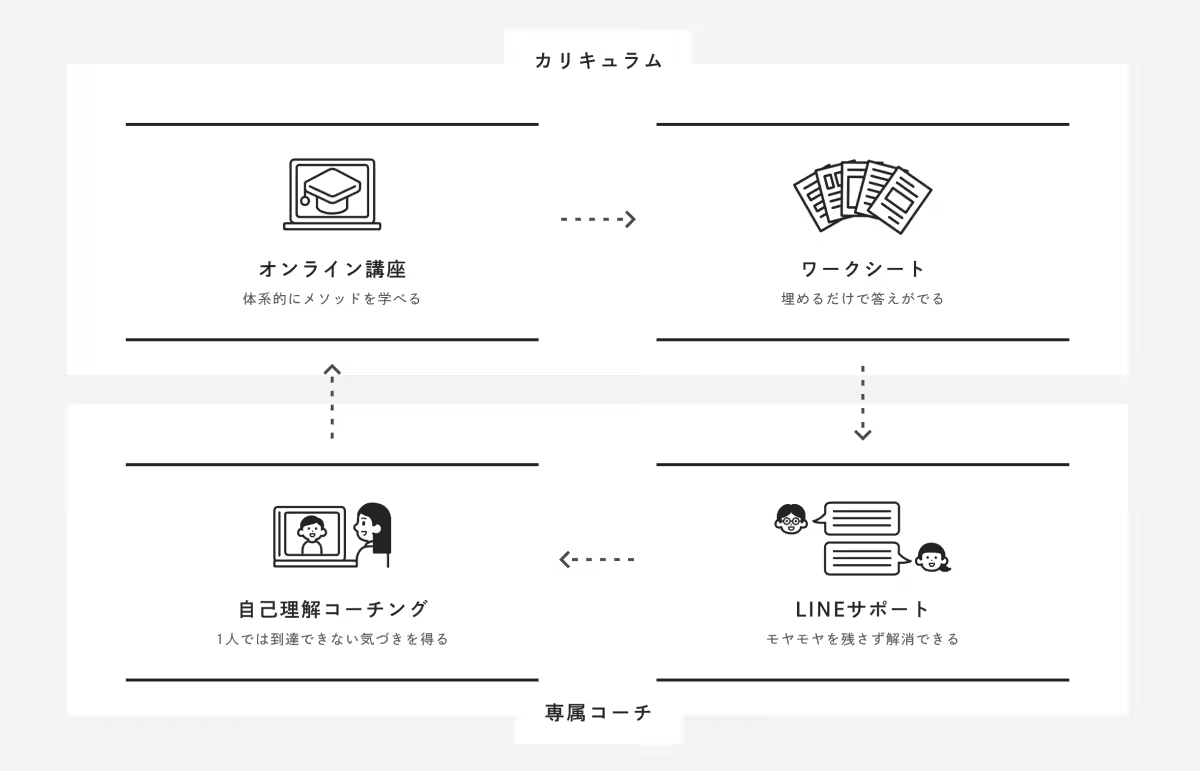
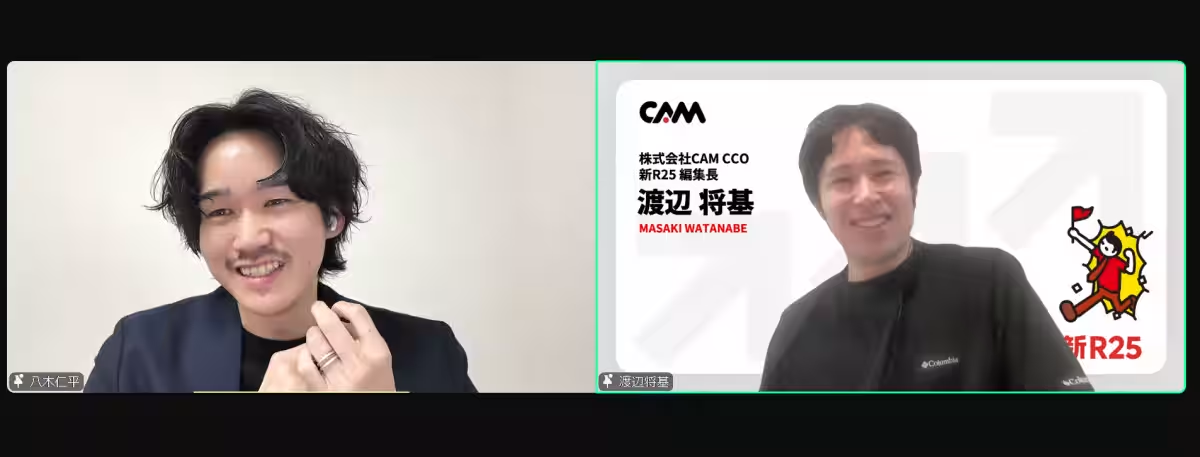
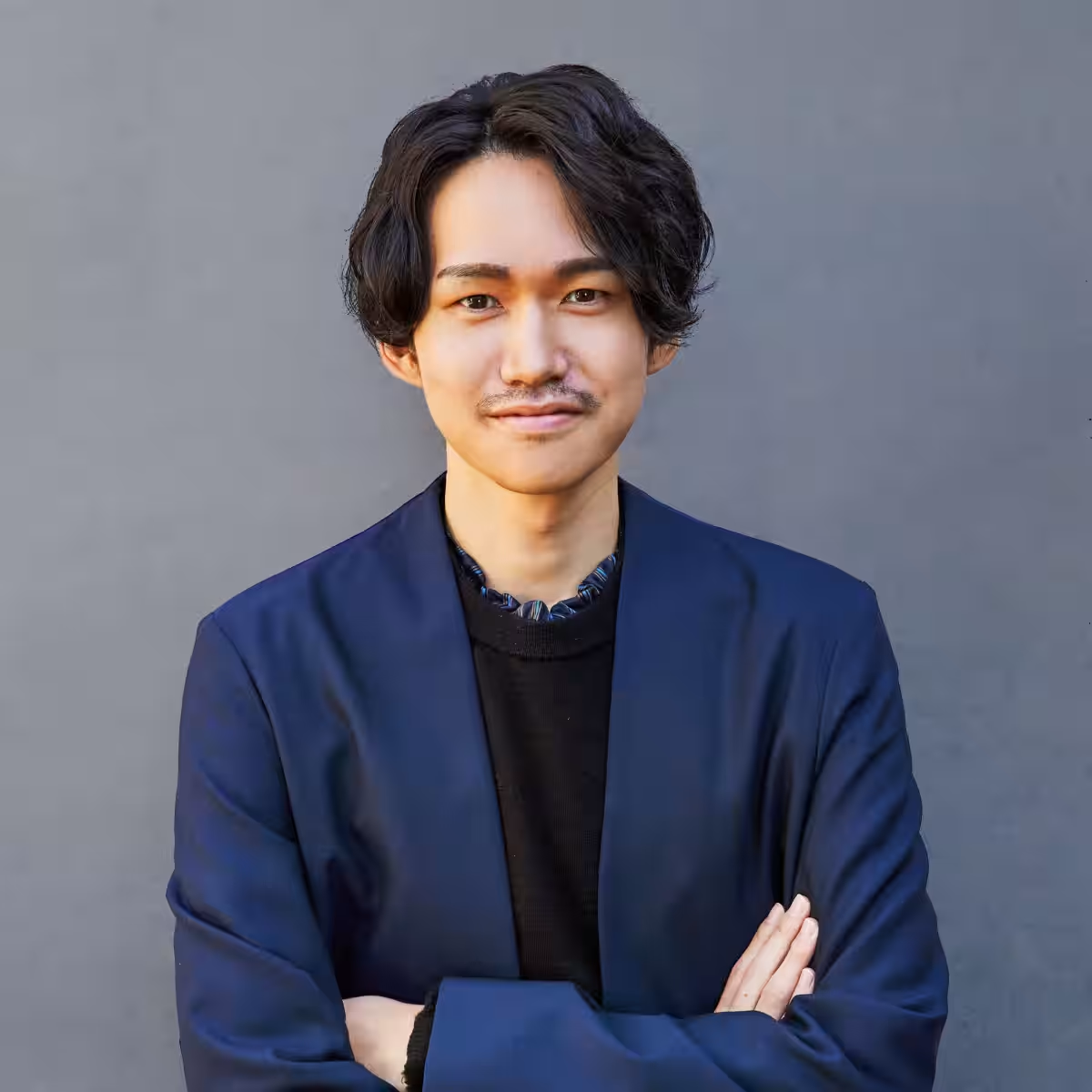
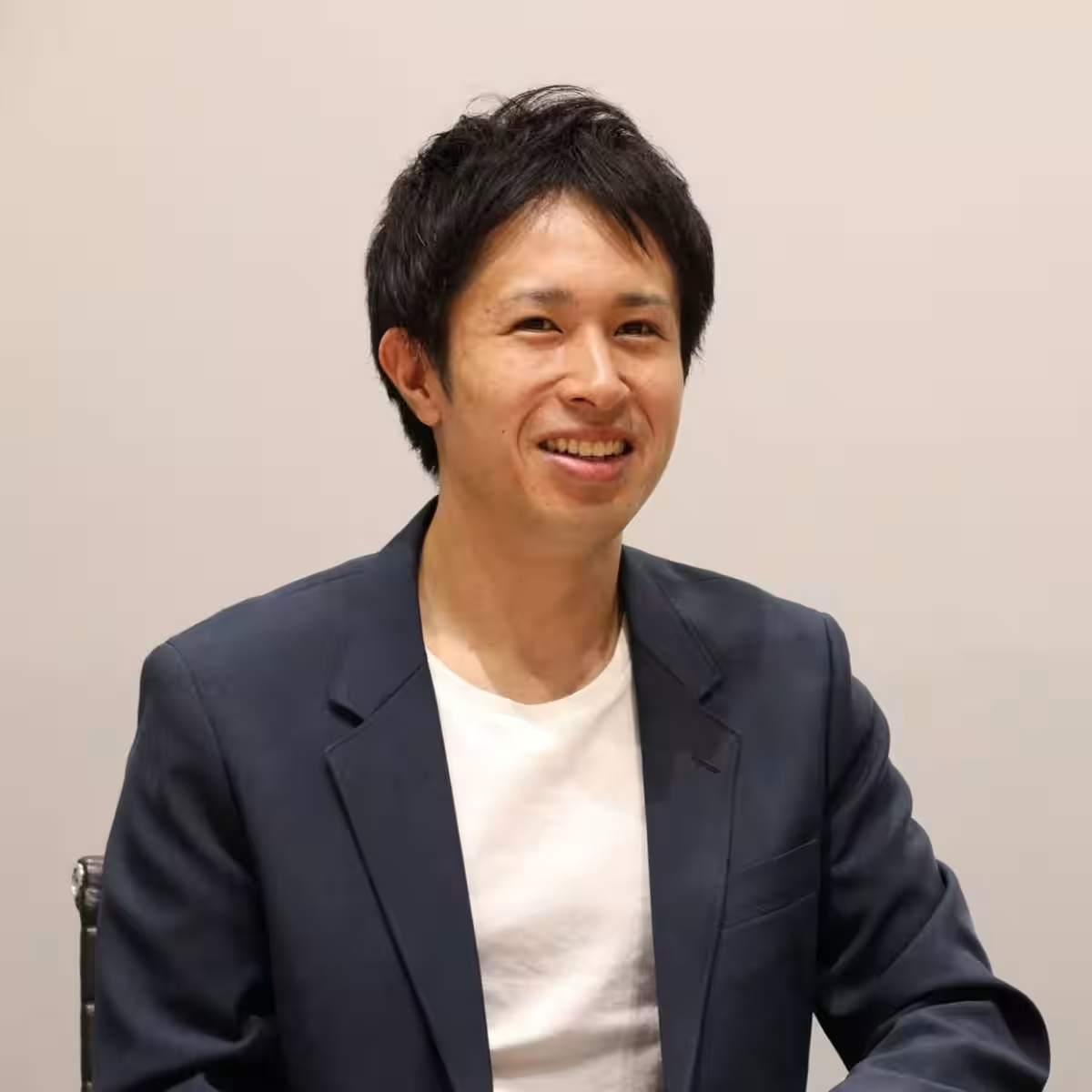
Topics People & Culture)










【About Using Articles】
You can freely use the title and article content by linking to the page where the article is posted.
※ Images cannot be used.
【About Links】
Links are free to use.